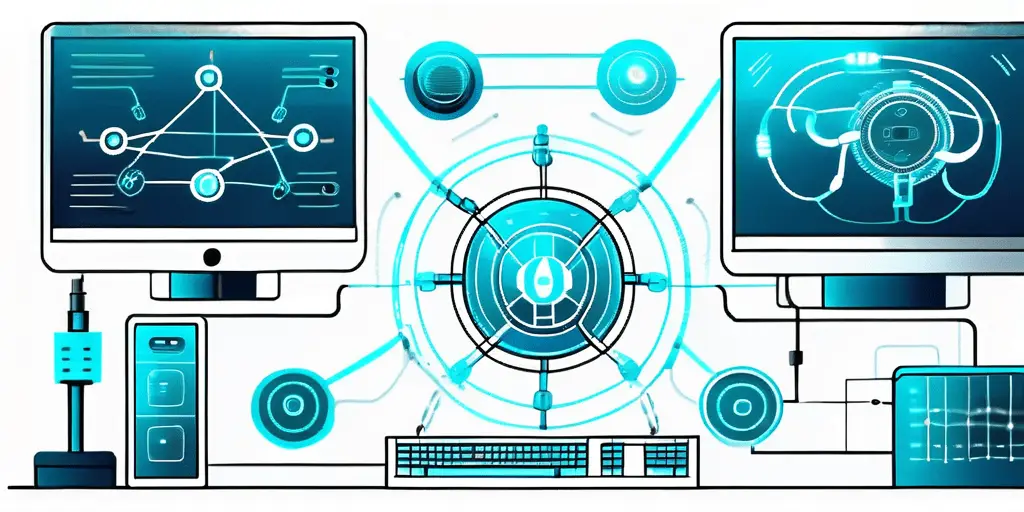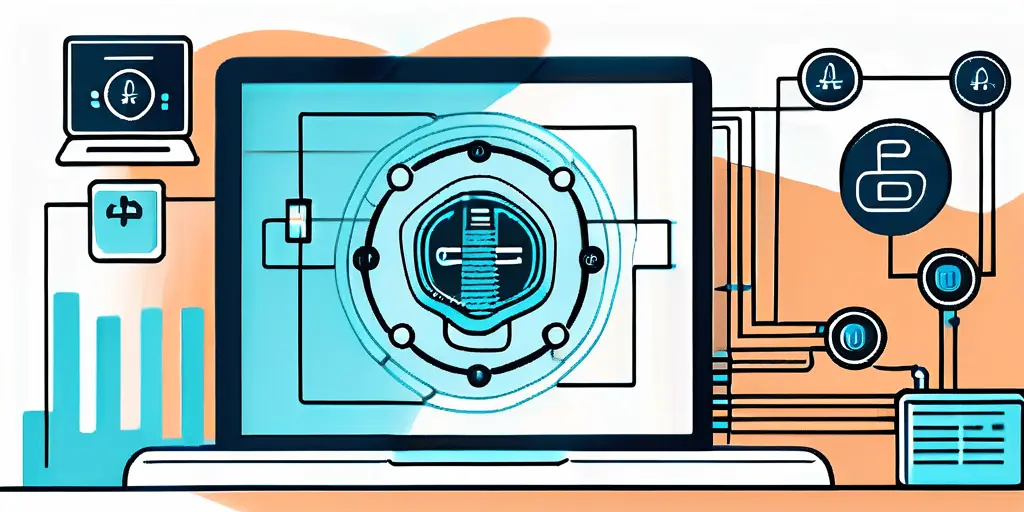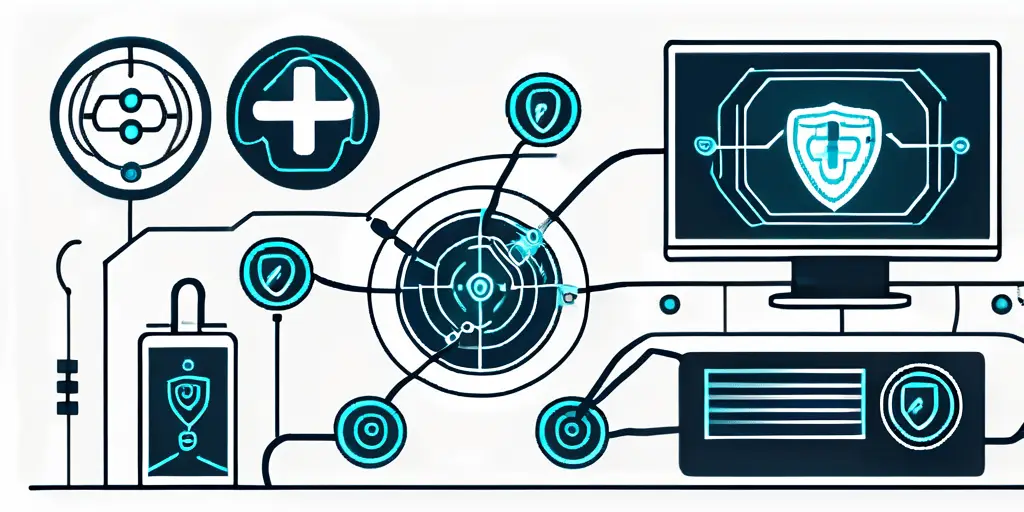Updated October 26, 2024
With the rapid technological advancements, the healthcare industry has witnessed a paradigm shift towards adopting interconnected medical devices. These devices, like the CoAP Protocol, enhance patient care and monitoring. However, with great power comes great responsibility, and the security of these devices should be a top priority to protect patient’s sensitive information and ensure the smooth functioning of healthcare systems.
Understanding the CoAP Medical Device Protocol
Before delving into the intricacies of cybersecurity in the CoAP Medical Device Protocol, it is imperative to understand what the protocol entails. CoAP, or Constrained Application Protocol, is a specialized web transfer protocol designed for constrained devices, such as medical devices, with limited computing power and network capabilities. Its lightweight nature and efficient communication make it an ideal choice for the healthcare industry. But how exactly does CoAP facilitate communication among medical devices?

The Role of CoAP in Medical Device Communication
CoAP is a communication layer that enables medical devices to exchange information seamlessly. It allows these devices to connect to the internet and transmit data to other devices, healthcare providers, and even cloud-based storage systems. By leveraging CoAP, medical devices can provide real-time updates, collect patient data, and perform remote monitoring, thereby enhancing the efficiency of healthcare delivery.
Key Features of the CoAP Protocol
CoAP offers several key features that make it an attractive choice for medical device communication. Firstly, it operates on the User Datagram Protocol (UDP), providing lightweight communication for resource-constrained devices. Secondly, CoAP implements the Representational State Transfer (REST) architectural style, allowing seamless integration with existing web services. Furthermore, CoAP supports multicast communication, enabling efficient group communication among devices. Lastly, CoAP utilizes a simple message format, ensuring low overhead and reducing network congestion.
A critical aspect of CoAP is its support for secure communication. In the context of medical devices, data privacy and integrity are of utmost importance. CoAP incorporates security mechanisms such as Datagram Transport Layer Security (DTLS) to protect the confidentiality and integrity of data transmitted between devices. This ensures that sensitive patient information remains secure during transmission, mitigating the risk of unauthorized access or tampering.
CoAP provides built-in support for resource discovery, which is crucial for medical devices operating in a dynamic network environment. Using CoAP’s resource discovery mechanisms, devices can easily locate and interact with other devices or services within the network. This simplifies integrating new devices into existing healthcare systems, promoting interoperability and enabling seamless collaboration between medical devices.
The Importance of Cybersecurity in Medical Devices
As the healthcare industry continues to embrace the CoAP Medical Device Protocol, it is crucial to acknowledge the potential risks and threats associated with interconnected devices. Cybersecurity breaches can compromise patient privacy, disrupt healthcare operations, and even put lives at risk. Comprehensive cybersecurity measures are vital to mitigate these risks and protect patients and healthcare providers.
Potential Risks and Threats
One of the primary risks associated with CoAP medical devices is unauthorized access. As these devices connect to the internet, they become vulnerable to malicious actors attempting to gain unauthorized access, extract sensitive patient information, or manipulate device functionality. Additionally, the potential for data breaches is a significant concern, as patient data is transmitted over the network, making it susceptible to interception or unauthorized viewing.
Another potential risk is device tampering. Cybercriminals may attempt to manipulate the functionality of CoAP medical devices, leading to inaccurate readings or even harming patients. This poses a significant threat to patient safety and underscores the importance of robust cybersecurity measures.
The Impact of Cybersecurity Breaches on Healthcare
The consequences of a cybersecurity breach in the healthcare industry can be catastrophic. Not only can it lead to compromised patient data and privacy, but it can also disrupt healthcare operations and hinder effective patient care. Even minor interruptions or delays can have severe consequences in critical situations, such as emergency medical procedures or real-time monitoring. Therefore, healthcare organizations must take proactive steps to ensure the cybersecurity of CoAP medical devices.
The financial impact of cybersecurity breaches cannot be overlooked. Healthcare organizations may face significant financial losses due to the costs of investigating and mitigating the breach and potential legal liabilities. The loss of patient trust and reputation can also have long-lasting effects on the organization’s bottom line.
Strategies for Ensuring Cybersecurity in CoAP Protocol
Securing the CoAP Medical Device Protocol requires the implementation of robust cybersecurity strategies. Healthcare organizations must adopt comprehensive measures to protect patient data’s integrity, confidentiality, and availability. Let’s explore some practical strategies that can be employed to ensure cybersecurity in the CoAP protocol.

As the healthcare industry digitizes patient records and medical devices, stringent cybersecurity measures become vital. Ensuring the security of the CoAP protocol is paramount to safeguarding sensitive patient information from cyber threats and malicious actors.
Implementing Secure Data Transmission
Secure data transmission is a critical aspect of CoAP protocol cybersecurity. Encryption algorithms, such as Transport Layer Security (TLS), should be employed to ensure the confidentiality and integrity of data during transmission. By encrypting the data, healthcare organizations can prevent unauthorized access and ensure that patient information remains secure.
Secure data transmission protocols protect patient data and enhance healthcare organizations’ trust and credibility. Patients are more likely to entrust their sensitive information to institutions that prioritize cybersecurity and data privacy.
Utilizing Encryption Techniques
In addition, to secure data transmission, encryption techniques can be utilized to protect sensitive information stored within medical devices and databases. Encryption ensures that even if an unauthorized individual gains access to the data, they cannot decipher its contents. Healthcare organizations can mitigate the risk of data breaches and unauthorized access by encrypting data at rest.
Regular security audits and penetration testing can help healthcare organizations identify and address vulnerabilities in their CoAP protocol implementation. Proactive measures such as these are essential in staying ahead of evolving cyber threats and ensuring the resilience of cybersecurity defenses.
Best Practices for Maintaining Cybersecurity
Ensuring cybersecurity in the CoAP protocol is an ongoing endeavor that requires constant monitoring and regular updates. Healthcare organizations should adopt best practices to maintain a robust cybersecurity posture. Let’s examine some essential practices that healthcare providers should follow.
Cybersecurity in the healthcare industry is a critical aspect that cannot be overlooked. With the increasing digitization of medical records and connected devices, the risk of cyber threats has grown significantly. Therefore, implementing a comprehensive cybersecurity strategy is paramount to safeguard patient data and ensure the integrity of healthcare services.
Regular Security Audits and Updates
Regular security audits and updates are vital to identify and address vulnerabilities promptly. Healthcare organizations should proactively conduct security audits of their CoAP medical devices to assess potential security loopholes. By staying up-to-date with security patches and firmware updates, organizations can protect against newly discovered vulnerabilities and ensure the overall security of their devices.
In addition to internal audits, collaborating with third-party cybersecurity firms can provide valuable insights and an external perspective on potential security risks. This holistic approach to security auditing can help healthcare organizations stay ahead of cyber threats and strengthen their defense mechanisms.
Training and Awareness Among Medical Staff
One of the weakest links in the cybersecurity chain is often human error. Healthcare organizations must prioritize training and awareness programs to educate medical staff about cybersecurity best practices, such as solid password hygiene, recognizing phishing attempts, and adhering to security protocols. By empowering staff with the knowledge and skills to identify potential threats, healthcare organizations can significantly enhance their cybersecurity posture.
Regular simulated phishing exercises can help assess medical staff’s readiness to identify and respond to phishing attempts. These exercises raise awareness about common cyber threats and provide valuable insights into areas that require additional training or reinforcement.
Future Trends in CoAP Protocol Cybersecurity
As technology continues to evolve, so does the cybersecurity landscape. It is essential to stay abreast of the latest trends and advancements in CoAP protocol cybersecurity to ensure the continued protection of medical devices and patient data.
In addition to advancements in cybersecurity technologies, another critical aspect to consider in CoAP protocol cybersecurity is the importance of regular security audits and assessments. Conducting routine audits can help healthcare organizations identify vulnerabilities in their systems and address them before malicious actors can exploit them. By implementing a proactive approach to cybersecurity through regular audits, organizations can strengthen their defenses and better protect sensitive patient data.
Advancements in Cybersecurity Technologies
Advancements in cybersecurity technologies, such as intrusion detection systems, artificial intelligence (AI), and machine learning (ML), are poised to revolutionize how healthcare organizations protect their CoAP medical devices. These technologies can help identify and mitigate potential threats in real-time, creating a proactive defense against cyber attacks.
The Role of AI and Machine Learning in Cybersecurity
AI and machine learning algorithms have the potential to detect patterns and anomalies that may indicate a cybersecurity breach. By leveraging AI and ML, healthcare organizations can enhance their threat detection capabilities and respond swiftly to potential cybersecurity incidents. These technologies can also aid in identifying new and emerging threats, allowing for proactive cybersecurity measures.
Conclusion
As the healthcare industry embraces the CoAP Medical Device Protocol, ensuring robust cybersecurity measures is vital. Medical devices’ interconnected nature makes them susceptible to cyber threats and potential breaches. By implementing comprehensive strategies, adhering to best practices, and staying updated with the latest trends, healthcare organizations can protect patient privacy, maintain the smooth functioning of healthcare operations, and pave the way for secure CoAP medical devices in the future.

The urgency for impenetrable cybersecurity measures intensifies as the healthcare industry continues to integrate CoAP Medical Device Protocols. Blue Goat Cyber stands at the vanguard of cybersecurity excellence, offering bespoke B2B services that address the intricate challenges of today’s digital healthcare landscape. Our veteran-owned company brings expertise in medical device cybersecurity, penetration testing, and compliance with HIPAA and FDA standards, ensuring your operations are shielded from cyber threats. With Blue Goat Cyber, your organization can confidently navigate the complexities of cybersecurity, backed by our commitment to tailor our solutions to your unique needs. Don’t let cyber vulnerabilities undermine the integrity of your healthcare services. Contact us today for cybersecurity help, and partner with us to transform your cybersecurity challenges into opportunities for growth and resilience.


